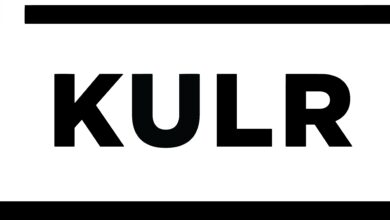Libra A global currency or monetary policy disruptor?

Facebook has recently announced their latest project and with that, we may see an explosion of renewed interest in the cryptocurrency space.
Cryptocurrencies are a hotly discussed topic these days and are the focus of attention for entrepreneurs, technologists, regulators, bankers, journalists, and people trying to figure out what the big deal is about Bitcoin anyway. Regardless, cryptocurrencies have yet to achieve mainstream adoption , however, that might all change soon. What Facebook and the Libra Association appear to be building is a stablecoin, but you may find yourself wondering what that is.
A stablecoin is a type of cryptocurrency that is designed to minimize price volatility, where the price of this stable digital currency is pegged to a stable asset. Typically, a stablecoin will be pegged to a currency (or multiple currencies) or to commodities and precious metals. In contrast to “crypto-assets” like Bitcoin, where price volatility between 5–10% on a weekly basis is a common occurrence, stablecoins seek to hold a relatively stable value. Most stablecoins on the market today are pegged to the value of the US dollar, and therefore provide a safe haven for cryptocurrency speculators in time of uncertainty.
The reason why this is useful is that cryptocurrency exchanges rarely have direct relationships with banks, and therefore cannot provide direct on-ramps for investors seeking to purchase cryptocurrency. Stablecoin providers make it easier by providing this on-ramp into the cryptocurrency space — think of it like digital money, rather than cryptocurrencies.
Libra appears to be focusing on developing a stablecoin that is stabilized by a basket of various currencies. This is hugely important because their aim is to provide digital money that is linked to the services (Messenger, WhatsApp, Instagram, Facebook Marketplace, etc.) — Facebook has billions of users throughout their services, and this could be the first step towards crypto becoming adopted by mainstream audiences.
Libra is tied together with third-party services through a wallet interface they call Calibra. With many high-profile partners, Calibra can essentially integrate with a wide variety of services, from hotel bookings and ride-sharing to cryptocurrency exchanges and payment service providers.
However, in stark contrast to cryptocurrencies, we now run the risk of taking the democratic element away from crypto. With Bitcoin (and many other cryptocurrencies), the whole idea is “freedom of money” — one holds their own “private keys” and therefore access and responsibility for one’s funds lie entirely with the user.
Uber, PayPal, Visa, and MasterCard, as well as Stripe, have allegedly pledged support and investment for the project and will be among the organizations hosting verification nodes in the Facebook stablecoin network. These nodes cost $10 million to run and ultimately will be part of the dividend payout scheme that Libra provides their partners through an investment token called Libra Investment Token (LIT).
Libra is a stablecoin where the underlying collateral is a basket of major currencies (USD, EUR, GBP, JPY). In essence, it looks rather similar to an exchange-traded fund, in the sense that it stabilizes its value based on multiple underlying assets. It’s not necessarily something we see major corporations and institutions using, but there is a clear use-case for retail users and remittances.
This could potentially be enormous news for both cryptocurrencies, as well as providing cheaper solutions to the hundreds of millions of people seeking to efficiently send remittances to their families abroad. It’s a positive approach to combating some very real issues in the world: remittances and poverty. Ultimately, Facebook is going to drive the mass adoption of crypto with this by providing an on-ramp into that scene.
While this is all well and good, there are still some concerns regarding privacy. While the Libra Foundation in Switzerland is touted to be independent of Facebook, there are still scenarios that can play out that disrupt the libertarian flow.
“There will be separation of data,” David Marcus, Facebook’s lead blockchain executive and Calibra CEO, stressed to Fortune. “People don’t want their financial data and social data commingled.” SOURCE
In their whitepaper, it is mentioned that Facebook is the provider of the subsidiary, Calibra. Furthermore, in the whitepaper, even though Facebook and Calibra do not interact with each other in the cross-checking of user data, it is mentioned that users have to opt-in to sharing account information and financial data, likely as the default setting on the platform.
Without a more elaborate privacy policy, it is possible that a user’s financial data will be used down the line for improved ad targeting. Once again, it’s a question of convenience vs privacy, which has been a dilemma for Facebook users for the past years since data privacy scares culminated in Cambridge Analytica’s scandal. However, if Libra can reconcile their policies with what users actually want out of the platform, it has enormous disruptive potential.
There is another concern, however, that involves the amount of power that this new corporate layer would have over monetary policy. Chris Hughes, Facebook co-founder, has elaborated on some concerns that the Libra Association, together with the corporate partners, might place strain on international “monetary control between central banks and individuals.” If individuals are given the option to move their funds into the Libra stablecoin, rather than keeping local currencies (as unstable as they may be), there is a risk of destabilizing already weakened nation-states even more.
Ultimately, the decentralization of Libra moves power away from central banks in the developing world, and gravitates towards more power to multinational corporations, the US Federal Reserve and the European Central Bank. By bundling stronger currencies together to create a single stabilized asset, you decrease the ability of nation-states to govern their own monetary policy as it relates to individuals and domestic businesses.
The size of Facebook (and thereby Libra), as well as their track record in terms of data privacy handling, has placed them in the cross-hairs of the regulators. The way that they approached it, for better or for worse, has called for regulators to push back as there are systems in place are being drastically undermined by Libra/Calibra.
It is different for ARYZE. We are conforming to the existing regulations as they stand, and in our minds, approaching the issue with caution and due diligence. There are correct procedures for all of these things, and it starts with conversations with the regulators from the top-down. You speak to the central bank and you state your intentions to make it clear what you are trying to do. It often comes down to the fact that you want to make it known that you are not a threat to a possibly fragile monetary system.
In conclusion, there is enormous potential for stable cryptocurrencies to be used in the “real world”. Google, Apple, and Amazon are not among the partners boasted by Libra which indicates that they may be improving their own digital wallet products. It’s possible that in the future, there will be a great many options for consumer and corporate stablecoin products.
There is no “one size fits all” in that different activities place weight on different features. Whether it’s a low credit-risk series of stablecoins like those we are producing at ARYZE with Digital Cash, or a convenient Libra stablecoin, the market for domestic and international money transfers is vast. The years to come will be greatly exciting in the sphere of innovative payments, especially when one considers that these platforms will all be interoperable in the future through next-generation applications.





